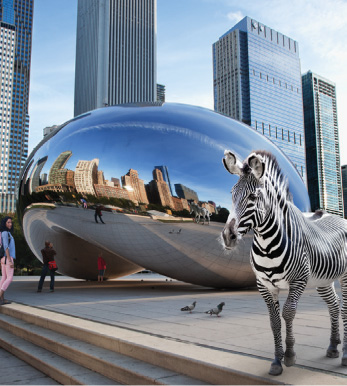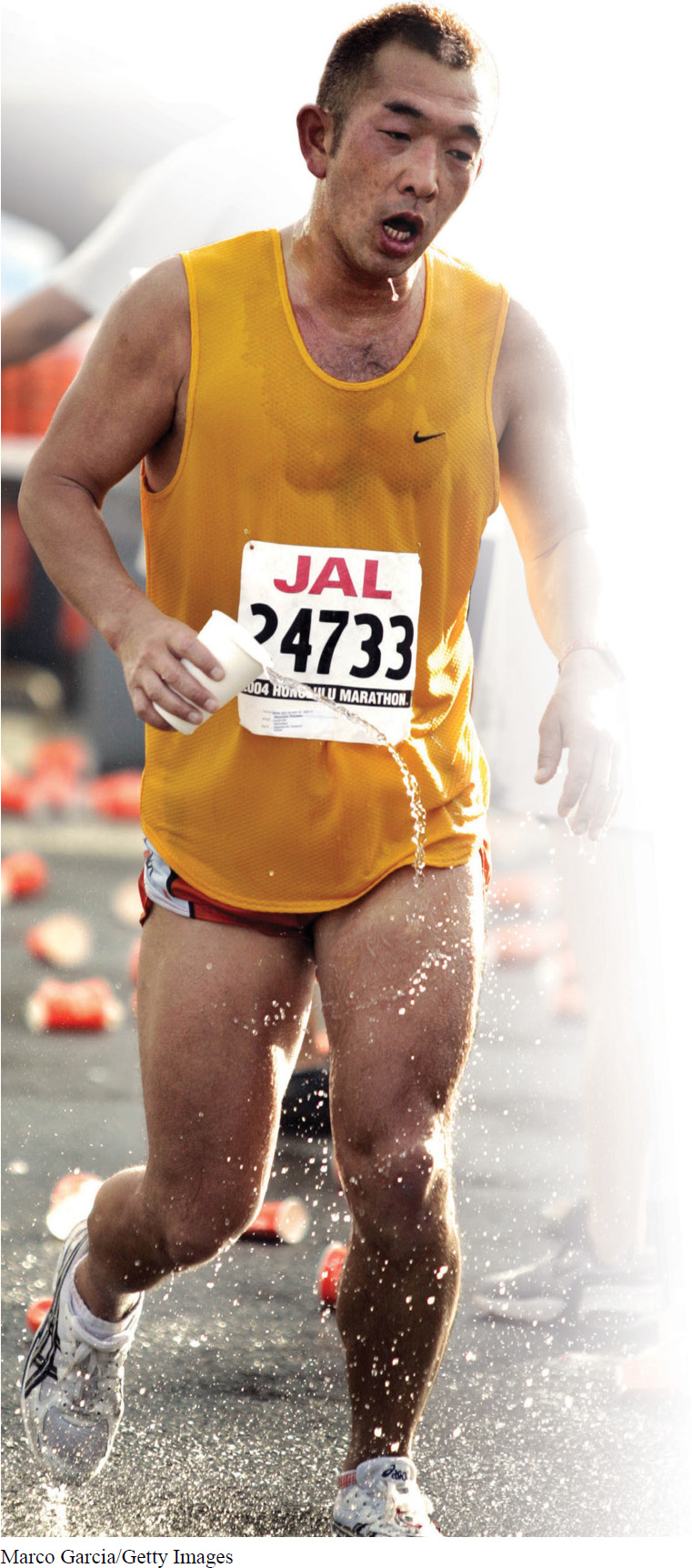KNOWLEDGE YOU CAN USE


People have long understood the risks of becoming dehydrated, particularly during activities such as marathon running in which a great deal of fluid can be lost through sweating. Only recently, however, has it been recognized that too much water—
Question 3.11
Q: When people sweat, what do they lose? Sweat consists of water and some dissolved solids, primarily salt. As the sweat evaporates, the body is cooled.
Question 3.12
Q: How do people respond to nausea and dizziness, the warning signs of dehydration? By drinking water. Because the water they drink lacks salt and other solutes, sodium imbalances can occur, particularly in the bloodstream and the fluid around cells (extracellular fluid).
Question 3.13
Q: If you drink lots (two gallons or more) of water—
Question 3.14
Q: What happens to your cells if they absorb too much water? They swell, sometimes to the point of rupturing. Such swelling and rupturing in the enclosed brain cavity can cause vomiting and confusion. Disastrously, these symptoms are often mistaken for the symptoms of dehydration and so the consumption of water is recommended, making the situation worse. Further swelling can lead to seizures, coma, and even death.
Question 3.15
Q: What should you do? Because water is considered the least toxic chemical compound, many people mistakenly assume there are no dangers associated with consuming it. This includes runners. As a consequence, many marathon organizers have been reducing the number of water stops they offer runners during the race and testing symptomatic runners’ sodium levels in medical tents along the course. Consuming salt tablets and salty snacks helps keep blood sodium levels in a healthy range.

129